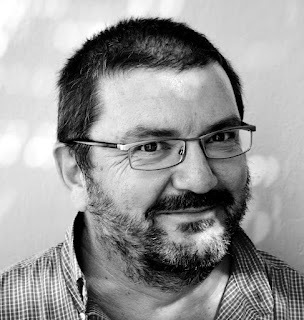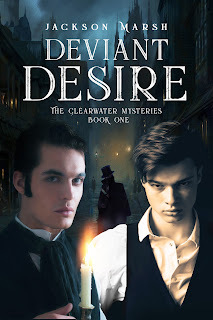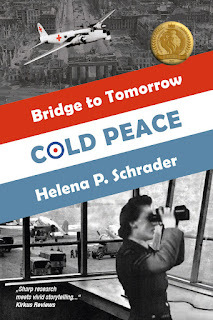Why I Write Historical Fiction - A Guest Blogpost from Jackson Marsh/James Collins
Today it is my pleasure introduce "Jackson Marsh" and hear his reasons for writing historical fiction. Jackson Marsh is the pen name of author and screenplay writer James Collins, who published 11 books before turning to what he had been hankering to write, historical mysteries and MM romance novels. Originally from Romney Marsh, England, Jackson now lives on a Greek island with his husband of 26 years.

I write historical fiction from the perspective of gay men.To be precise, I write about British gay men living in the Victorian era. Atthis time, being gay (as we call it now) was punishable by up to two years inprison with hard labour, and thanks to the Labouchere Amendment of the Criminal Law AmendmentAct 1885, it was extremely easy for men to be suspected of and arrested for ‘grossindecency.’ What’s more, sexual acts no longer had to be proven. This is thelaw that was used most famously against Oscar Wilde, but many men from all classesfell foul of it.
At the same time, Victorian London (and other less written about cities)suffered from what I call an outbreak of immorality. This, I believe, was areaction to the more widespread outbreak of morality.
Pressure of Being Gay in Victorian Times
With the idea in mind of ‘What was it like to be illegal from birth?’ I setabout writing a series of novels set in the late 19th century, where all themain characters bar one are gay men. Throughout the series, these men areillegal by their very nature, and I was interested to explore the pressurebeing gay would have put on them. Waking up every day knowing that you loveother men and can do nothing about it, having to be careful who you meet andspeak to, not being able to express yourself and knowing you might, at anytime, be arrested… These are still issues in many countries around the worldtoday. So, I thought, my theme is still very relevant.
The Clearwater Mysteries
What I do with the series is, in effect, put modern-day issues into a historicalsetting, and that is the overarching theme. The stories are individualmysteries set within this world and its expectation of morality, and thecharacters react to this outside pressure through male bonding, bromance, and romance,all of which no doubt went on and thrived at the time yet had to happen with agreat deal of caution.
Thus, the series is blanketed by the pressure of illegality.However, it goes further than that because the two main characters are fromdifferent social classes. One is a viscount newly elevated to his title ofViscount Clearwater, and the other — Silas, the man who becomes the love of theviscount’s life — is what we’d now call a rent boy, a homeless young man livingrough on the streets of the East End of London. With him is his best friend, aUkrainian refugee and a fellow part-time renter. Viscount Clearwater wants tohelp such young men by providing a mission, and thus, he and Silas meet.
Setting Fiction Against History
There’s another layer to the series-starter novel, ‘Deviant Desire.’ The mysteryand action plot take the premise: ‘What if Jack the Ripper killed men?’ Inother words, the East End Ripper of 1888 is attacking rent boys, instantlyputting Silas in another danger.
Having written ‘Deviant Desire’ I realised that not only didI have a good band of five principal male characters (all gay apart from theUkrainian refugee) and a couple of hideous villains/antagonists, but I also hadthe opportunity to explore other true-life events and crimes, and use them asthe inspiration for an ongoing series of mysteries. This is why, as The Clearwater Mysteriesprogresses, we meet characters such as Bram Stoker and Henry Irving, and wespend time in the British Museum Reading Rooms and the Royal Opera House.Throughout the background of these fictionalised stories are facts and truismsfrom history, and as much as I can, I have the characters living the zeitgeistof the time. That in itself if something of a challenge for many authors of historicalfiction, particularly those who are not historians.
I have great fun exploring old dictionaries and modern onesto see if a word I want to use was in existence at the time in which I am writing.If ever I read, or hear on a film or TV show, characters pre-1940 saying theword ‘Okay’, I switch off. If I’m not sure about a word, I check it out, andfind an alternative. For example, none of my characters can use the word‘acerbic’ because it didn't come into usage until the start of the 20thcentury.
So, Why Do I Write Historical Fiction?
I write historical fiction based on facts because a) I enjoywriting stories, b) I enjoy researching and learning as I go, and c) I wantedto highlight the plight of 19th century gay men. To do this, I created a protagonistwho is in a position to help other gay men, and Lord Clearwater does so throughoutthis 11-book series and the ones that follow.
The ClearwaterMysteries begins at the time of the East End Ripper in 1888 with theopening novel, ‘Deviant Desire.’
Website: www.jacksonmarsh.com

Blog Host Helena P. Schrader is the author of 25 historical fiction and non-fiction books, eleven of which have one one or more awards. You can find out more about her, her books and her awards at: https://helenapschrader.com
Her most recent release, Cold Peace, was runner-up for the Historical Fiction Company BOOK OF THE YEAR 2023 Award, as well as winning awards from Maincrest Media and Readers' Favorites. Find out more at: https://www.helenapschrader.com/cold-peace.html




